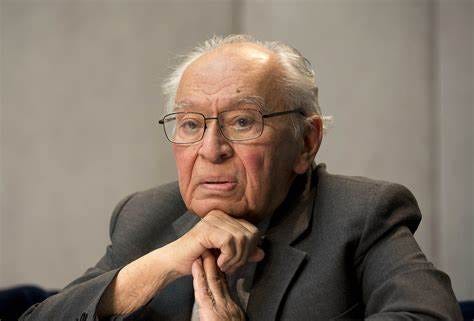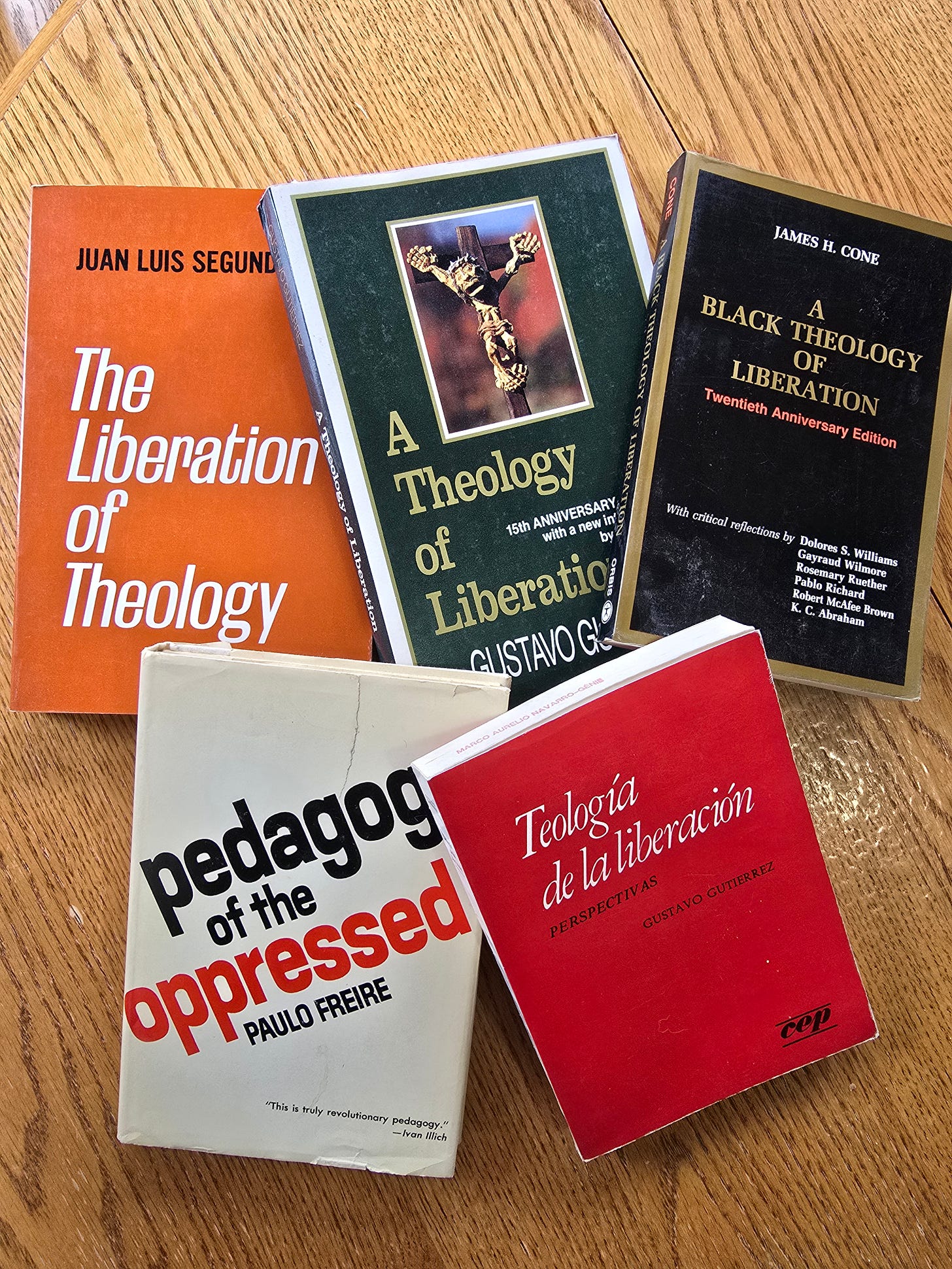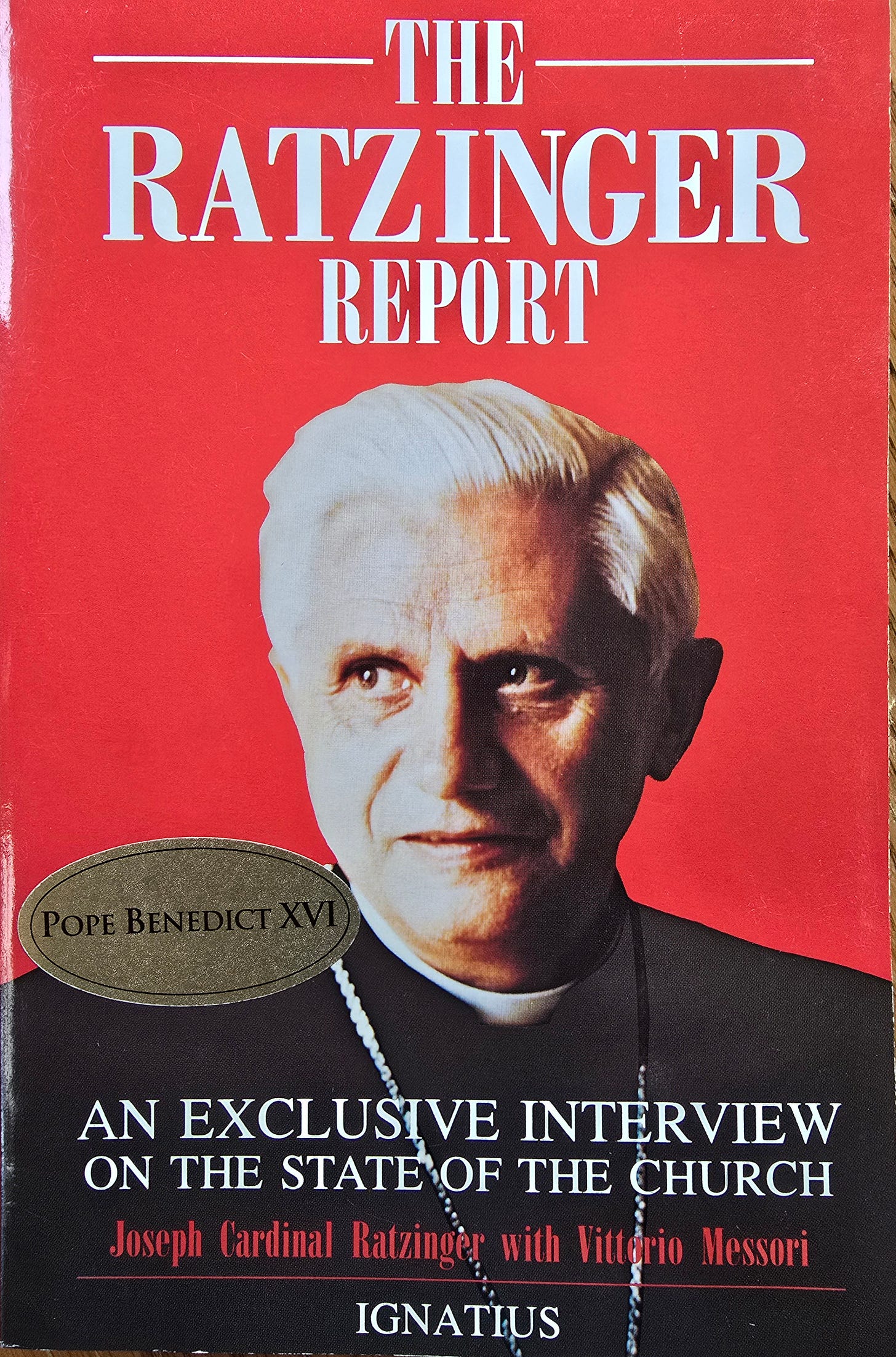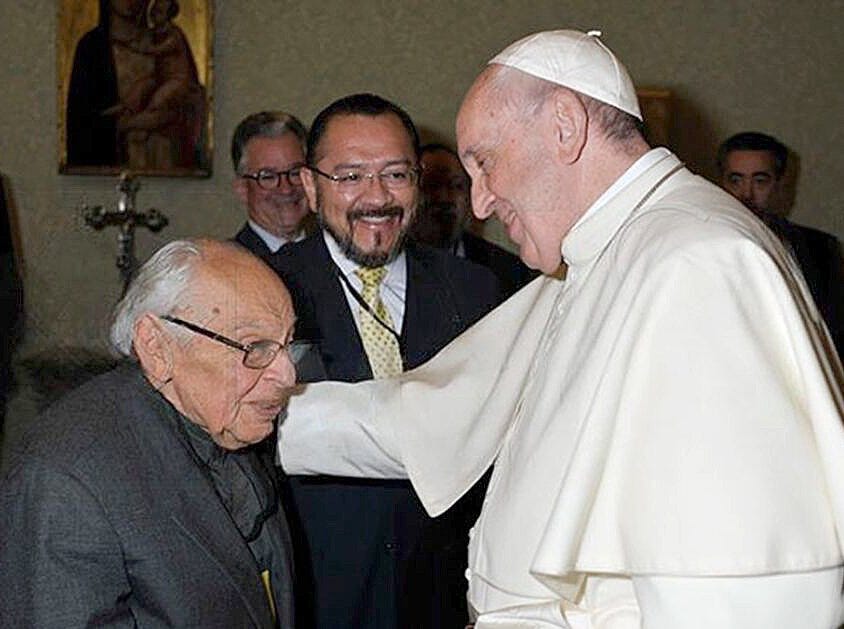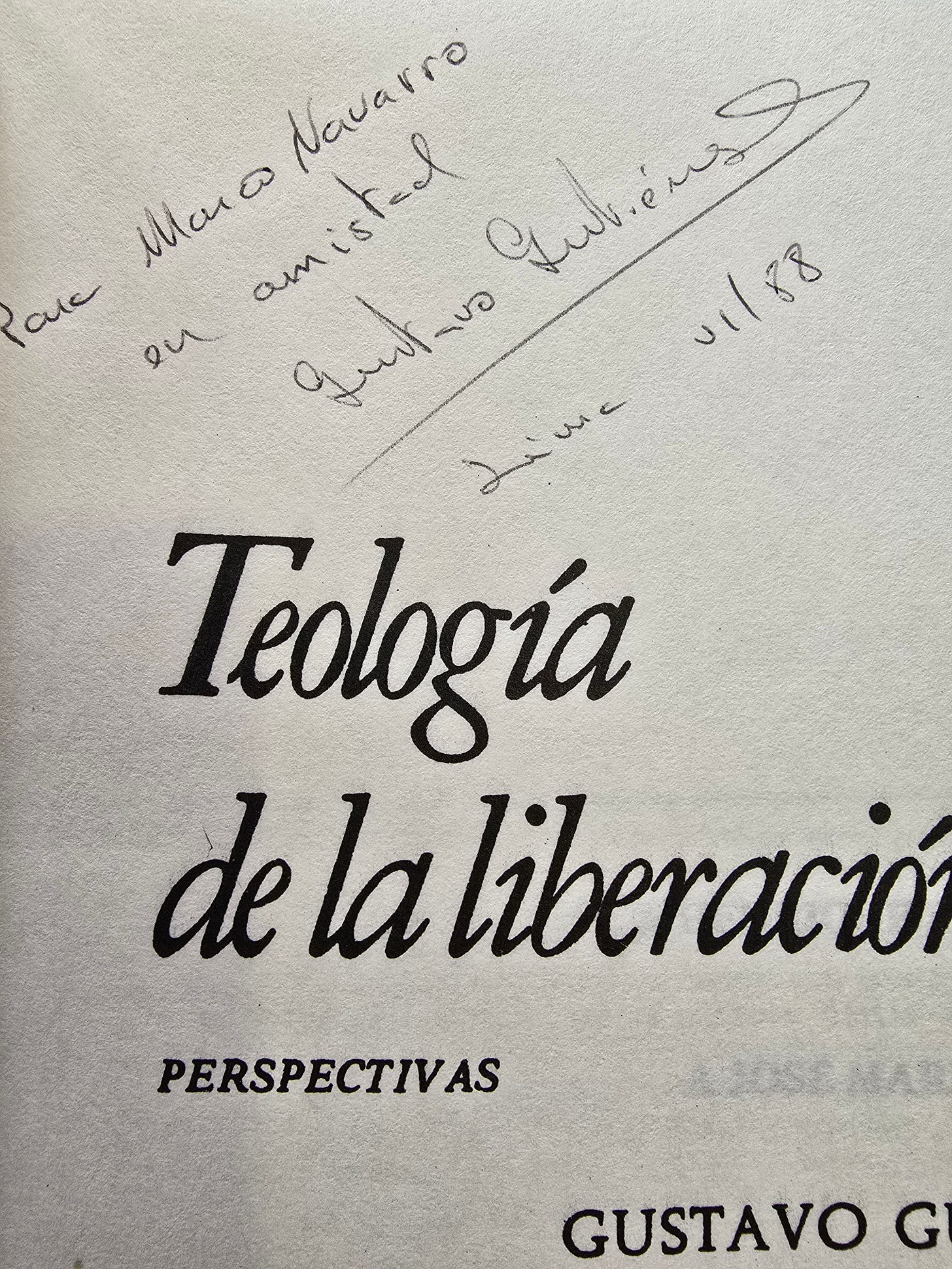Father Gustavo Gutierrez passed away on October 22, 2024. He was Latin America’s most influential Catholic intellectual in the last half-century. His teachings about “preferential options” for oppressed segments of a population failed, but they are still reflected in woke culture in Western societies.
Gutierrez had a strong influence on my intellectual development and my academic career. That does not mean that I am a disciple or a follower. I was vaguely familiar with his ideals as a Catholic teen in my home country. I understood that they were revolutionary ideas and found the goals appealing. However, after the Sandinista Revolution in Nicaragua, it became apparent that Marxism by any other name was still Marxism.
After writing a significant research paper in a Catholic Social and Political Thought class, I learned about and was able to drill down on its Marxist assumptions with the help of critics of his ideas. My Master’s Thesis was going to be on liberation theology before I discovered that Augusto Sandino, the Nicaraguan Revolutionary, had a messianic vocation. Learning more about Sandino taught me even more about Liberation Theology and those who espoused those views.
Gustavo Gutierrez: An Overview
Gustavo Gutierrez was a Peruvian priest and theologian who became internationally recognized as the founding voice of Liberation Theology. Born in Lima in 1928, Gutierrez began his studies in medicine before dedicating himself to theology. He studied at the Catholic University of Louvain in Belgium, among other institutions, where he developed his theological ideas in dialogue with social and political ideologies. His seminal work, A Theology of Liberation (1971), catalyzed a movement within Latin American Catholicism that sought to address poverty and social injustice.
Influenced by the poverty he witnessed in Peruvian communities, Gutierrez proposed a radical theology that merged elements of Catholic doctrine with Marxist thought, emphasizing a commitment to the liberation of the oppressed.
Liberation Theology and Its Core Principles
Liberation Theology emerged in the 1960s and 70s against widespread poverty and political repression across Latin America. Gutierrez’s theology argued that the Church’s role extended beyond spiritual salvation to active social reform. His doctrine is encapsulated in five central tenets:
- Preferential Option for the Poor: This tenet asserts that God’s message prioritizes the poor and marginalized, urging the Church to focus on their needs and challenge systemic injustices perpetuating inequality.
- Social and Economic Liberation: Liberation Theology posits that true liberation cannot be solely spiritual but must encompass social, economic, and political dimensions, pushing against structures that sustain poverty and oppression.
- Political Action as an Expression of Faith: Gutierrez advocated for a theology that calls for direct involvement in social and political movements, redefining religious practice as a vehicle for social transformation.
- Solidarity with the Oppressed: Gutierrez encouraged the Church to work alongside the poor, embodying Christ’s love through shared experiences of suffering and struggle.
- Liberating Praxis: Central to Gutierrez’s theology is praxis, the idea of reflective action, where believers analyze their social reality, act to change it, and then reflect upon their actions to guide further transformation.
Gutierrez’s approach diverged from traditional Catholic teachings by incorporating Marxist elements, such as the focus on class struggle and the critique of capitalism as inherently exploitative. He maintained that the Church’s mission should directly challenge oppressive social structures, seeing liberation from poverty as integral to spiritual salvation.
Spinoffs and Extensions of Gutierrez’s Theology
The influence of Gutierrez’s work extended beyond Latin America, inspiring numerous variations of Liberation Theology. Black Liberation Theology emerged in the United States, advocating for racial justice within a Christian framework. Feminist Liberation Theology used Gutierrez’s ideas to argue for gender equality within the Church, challenging patriarchal structures. Brazil, mainly through theologian Leonardo Boff, adapted Liberation Theology, advocating for political and environmental reform as an extension of Gutierrez’s vision. These adaptations diversified Liberation Theology and cemented its role in worldwide social justice movements.
Theological Controversies Surrounding Liberation Theology
The integration of Marxist ideas into Catholic doctrine sparked significant theological debate. Cardinal Joseph Ratzinger, later Pope Benedict XVI, expressed strong concerns about Liberation Theology, critiquing it in his 1984 Instruction on Certain Aspects of the “Theology of Liberation.” Ratzinger argued that Liberation Theology distorted Christian teachings by subordinating spiritual concerns to political ideology. He contended that Gutierrez’s interpretation risked reducing the message of the Gospel to a secular Marxist framework that overemphasized political and economic liberation while downplaying spiritual salvation.
Ratzinger’s criticisms were echoed by Michael Novak, a prominent Catholic philosopher and theologian, who rightly argued that Liberation Theology’s materialist orientation conflicted with core Catholic beliefs about the nature of the human soul. Novak warned that Liberation Theology’s reliance on Marxist materialism was a departure from Catholic teachings on the human person as a spiritual being. He also argued that Liberation Theology’s focus on class struggle encouraged conflict and division, which he saw contradictory to the Church’s mission of promoting peace and unity. Ratzinger and Novak emphasized the need to balance social justice with the Catholic commitment to the transcendent, cautioning that political activism alone could not fulfill the Church’s spiritual mission.
Pope Francis and Liberation Theology: Advocate or Detractor?
Pope Francis’s relationship with Liberation Theology represents an evolution in the Vatican’s approach to this once-controversial movement. The Pope’s maneuvering through these controversial ideas today benefits from its failures, allowing him to move away from the worst portions of it —something he never openly did in the 1970s and 1980s.
Although Francis is cautious of the Marxist roots that fueled Liberation Theology’s political stance, he is sympathetic to its emphasis on social justice and the Church’s obligation to the poor—a focus central to his papacy. Gustavo Gutierrez’s death on October 22, 2024, marked the passing of the movement’s most recognized voice, yet the themes of Liberation Theology remain woven into Francis’s vision for the Church.
As the first pope from Latin America, Francis has a unique connection to the social issues that inspired Liberation Theology. His experience as a Jesuit in Argentina during the 1970s was marked by intense political upheaval and debates over Liberation Theology within the Church. At that time, Francis (then Jorge Bergoglio) was a cautious observer of the movement, wary of its potential alignment with Marxist ideology and timorous of triggering violence from the Argentinian military dictatorship. However, since becoming pope, he has expressed a more nuanced perspective, encouraging compassion for the marginalized without directly endorsing the Marxian political dimensions of Liberation Theology.
Support and Distance
A. Shared Focus on the Poor and Marginalized: Liberation Theology’s “preferential option for the poor” resonates deeply with Francis’s teachings, particularly his commitment to social justice. In numerous speeches and writings, he has emphasized the Church’s duty to prioritize the marginalized, a call that aligns closely with Gutierrez’s foundational ideas. His papacy has been defined by economic inequality, migration, and environmental justice—all areas of concern in Liberation Theology, albeit through a lesser Marxist approach.
B. Rehabilitation of Liberation Theology Figures: Under Francis, the Vatican has extended a reconciliatory hand to figures previously associated with Liberation Theology. In 2013, he invited Gustavo Gutierrez to the Vatican, underscoring his respect for the theologian’s contributions. Francis has also honoured the legacy of Archbishop Oscar Romero, a martyr closely associated with Liberation Theology, by canonizing him in 2018. These actions validate Liberation Theology’s contributions while reframing its core message away from political activism.
C. Caution Against Ideological Distortion: Though he has softened the Vatican’s stance toward Liberation Theology, Francis mostly avoids its Marxist rhetoric, wary of ideological distortions. His critiques of capitalism focus on moral and environmental issues rather than class struggle —less overt forms of materialistic struggles. His encyclical Laudato Si’ calls for an “integral ecology” to address the exploitation of people and nature. Thus, generously interpreted Francis upholds the Church’s spiritual mission, aligning with concerns Cardinal Joseph Ratzinger and Michael Novak raised about Liberation Theology’s materialist tendencies.
D. Pastoral Approach over Political Activism: Francis has reinterpreted Liberation Theology through a pastoral lens, stressing compassionate outreach rather than revolutionary activism. Describing the Church as a “field hospital,” he encourages clergy to engage directly with suffering communities and to “go to the peripheries.” This approach broadens Liberation Theology’s social focus while tempering its ideological fervour, positioning the Church as a source of healing rather than class confrontation.
In summary, Pope Francis’s relationship with Liberation Theology is one of balanced endorsement. While he validates its emphasis on the poor and marginalized, he reorients its mission around pastoral engagement, diverging from the political activism that once defined the movement. In doing so, Francis underscores the Church’s call to address social injustice without compromising its spiritual integrity, and his nuanced approach ensures Liberation Theology’s continued influence in a form that resonates with contemporary Catholicism.
Liberation Theology in Haiti and Nicaragua: Practical Failures
Liberation Theology’s application in Haiti and Nicaragua exposed several practical limitations. In Haiti, efforts to employ Liberation Theology were undermined by political instability and the entrenched violent tendencies of that society. Similarly, it revealed some tyrannical tendencies in its priest and president, Jean Bertrand Aristide. He demonstrated that Liberation Theology considerations can come into political office and fail to transcend the baser nature of human beings. Ultimately, Liberation Theology failed to address Haiti’s entrenched economic issues or provide a stable platform for sustained social reform.
In Nicaragua, the Sandinista government initially embraced Liberation Theology, enlisting prominent clergy members in the revolutionary government. Figures like Miguel d’Escoto and Ernesto Cardenal, both priests, served in high-ranking government positions and promoted Liberation Theology’s ideals. However, the Church’s role within the corrupt Sandinista regime led to significant backlash. The Sandinistas shifted toward totalitarianism, persecuting religious figures and silencing opposition, including Church leaders who criticized state policies. This co-optation of religious ideology for political ends discredited Liberation Theology among many Nicaraguans and followers worldwide, underscoring the risks of aligning religious movements closely with political power.
Liberation Theology followers blame the Sandinistas for the results. But priests and Marxist Christian elites are equally responsible. Many embraced the revolutionary cause and the injustices it caused Nicaraguans, naively claiming it would correct the institutional wrongs of centuries. Their endorsement supported killing, torture, theft and much more. The Marxist priest and the intellectual class that promoted liberation theology, including poets, artists and popular musicians, later abandoned the Sandinistas, but not before plunging the country into a greater dictatorship than the one they displaced. They must bear a good portion of the responsibility for having helped install the Sandinista tyrants into office.
Key Weaknesses of Liberation Theology
Ratzinger, Novak, and many other critics were right. Liberation Theology’s shortcomings include an overreliance on Marxist analysis and materialist concepts, which alienated many within the Catholic Church. The movement’s focus on political activism and class struggle often sidelined traditional spiritual teachings, creating tensions between social justice objectives and Catholic doctrines. Moreover, its secular underpinnings and emphasis on revolutionary change sometimes marginalized worshippers who preferred traditional expressions of faith.
Haiti and Nicaragua demonstrated what we already knew about the Marxist framework and class struggle. One cannot establish a regime of justice based on exploiting divisions among people based on envy and resentment. Ideological governments claiming to follow liberation theology also demonstrated that highly ideological quickly turn authoritarian and governments are anti-political.
This is also the lesson of the Woke government of Justin Trudeau in Canada. Although wokism is an anti-religious movement, its professions of faith are quasi-religious in the cultish sense of religion. Trudeau’s ideological preference for those professing identities out of the norm led to deep divisions within the country. Couple with profound economic and organizational incompetence, Trudeau’s wokism has brought benefits to some and great suffering to many, primarily affecting the lower and middle classes. The final balance of the damage caused by such an ideological government for Canada remains to be tallied.




